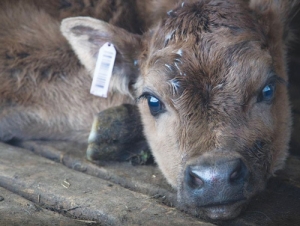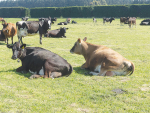In a matter of days – on August 1 – new regulations on bobby calves come into force.
The regulations require bobby calves to be four days old before trucking, truck journeys must not exceed 12 hours, young calves may not be shipped across Cook Strait, and 'blunt force' killing (blow to the head) is banned except in an emergency.
A major development in the quest to improve the welfare of bobby calves has been the setting up of the Bobby Calf Action Group (BCAG), comprising DairyNZ, Dairy Companies Association of NZ, Meat Industry Association, Federated Farmers, NZ Petfood Manufacturers Association, Road Transport Forum, NZ Veterinary Association and the Ministry for Primary Industries.
All eight organisations have worked separately and collectively to educate their members about the new rules and their implementation.
DairyNZ and NZVA have run 60 training workshops for dairy farmers nationwide, and DCANZ has reviewed farmers' individual terms and conditions of supply in respect of animal welfare and worked with other organisations to keep farmers informed. The Petfood Manufacturers Association has updated its code of practice for managing bobby calves, and the MIA and the Road Transport Forum have run education programmes for members and suppliers to ensure compliance.
MPI's director-general Scott Gallacher says from what he sees day-to-day the vast majority of NZ farmers do the right thing in animal welfare and MPI is confident the message has got out to farmers.
"That's why we are working with all players in the industry and have run a media campaign direct to consumers, the public and farmers to ensure all know that if they see anything giving cause for concern they should contact MPI and we'll get to the bottom of it."
MPI's campaign about the new regulations was to alert anyone with an interest in animal welfare to be empowered to call them.
"It might well be an education programme all round because we are aware that often people see something that concerns them. I don't want them to be left in the dark and have no-one to talk to. It is quite powerful for us when we get back to them and say 'we have investigated that and it wasn't what you thought. It was actually this situation and there was no breach of the animal welfare rules'. From our perspective it is part of an education process because we have had a conversation with them," he says.
Gallacher says this is all part of the process of reassuring the public that MPI will investigate any complaint and if there is a breach of the regulations it will prosecute. MPI is trying to sort out the minority who don't look at the rules, or ignore them.


















